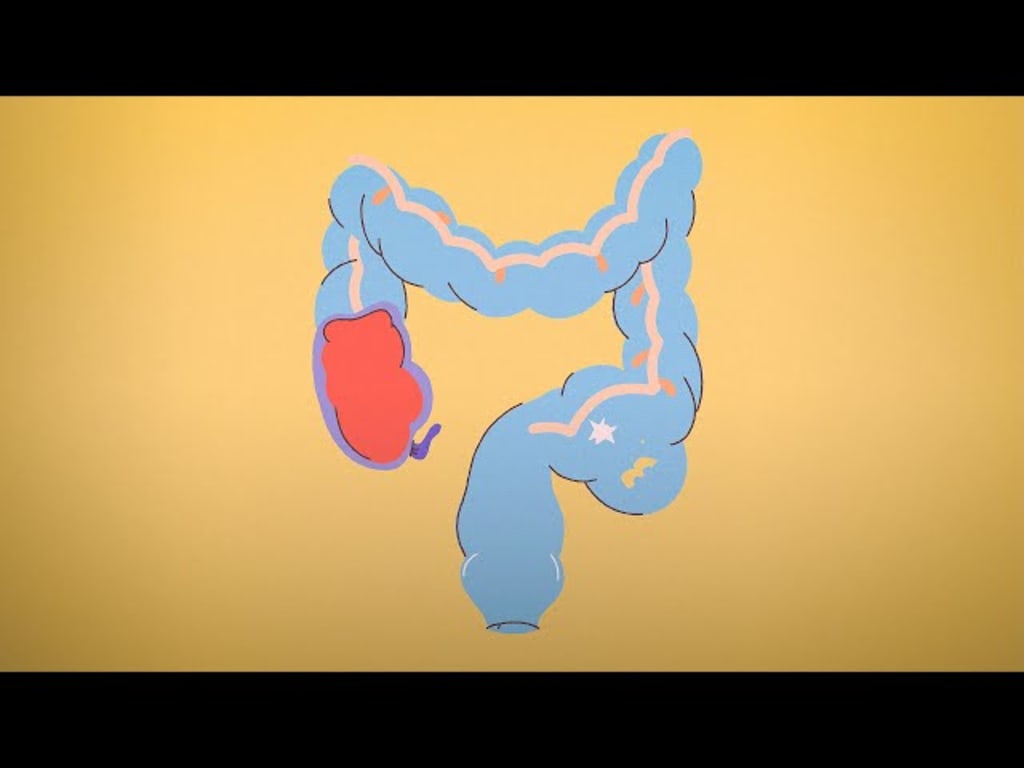
When do you go potty? You may have heard that you need to urinate once day. But in reality, you're absolutely normal whether you go to the bathroom three times a day or more frequently than that. Body Stuff with Dr. Jen Gunter (music) (Music) I'm Dr. Jen Gunter. Hello. More often than you might imagine, as an ob-gyn and a pain medicine specialist, I find myself discussing poop with my patients. I notice a lot of worry about it overall. Even though it's a fictitious statistic, some people worry if they don't have a bowel movement once a day. Some people experience constipation.They frequently don't receive the necessary care, and they may even resort to risky treatments like colon cleanses. One word, though, stands out among all the feces talk: fiber. I'll walk you through the process from eating to pooping. In fact, digestion begins in the mouth. The food is broken down into tiny pieces during chewing. Saliva, which possesses enzymes that begin to break down those carbs and fats, combines with your food while you eat, moistening it. Food is moved to your stomach by the contractions in your esophagus, where it is further broken down by the acid, gastric fluids, and enzymes. The food then moves to the small intestine where, with assistance from the pancreas, gallbladder, liver, and microbiome, lipids, proteins, carbs, and micronutrients are further broken down so they may be absorbed across the small intestine and transported to the liver for processing. The remainder travels to the colon, also known as the large intestine, which performs three main functions: absorbing water and electrolytes, generating and absorbing vitamins, and creating and squeezing the substance, now known as stool, in the direction of the rectum. When the rectum is full, the brain receives a signal, considers if it is a suitable time for urination, and if it is, sends a signal to the anal sphincter muscles to relax.And then, well, you know what follows. In healthy individuals, this procedure normally takes between 24 and 120 hours and involves more than 10 organs. It's therefore a good idea to conceive of poop as everything that isn't digested during this procedure. It is made up of fiber, water, bacteria, mucus, and dead cells. Fiber is fantastic. From top to bottom, it has an impact on the digestive system. It is merely a carbohydrate that the body is unable to absorb. While other carbohydrates are converted to sugars, fiber sort of moseys about while performing a variety of interesting tasks. High-fiber foods help us time our meals because they take longer to physically consume. Additionally, the bulk prolongs your feeling of fullness by slowing down digestion, especially in the stomach. Fiber keeps the stool soft by attracting water into it. To put it mildly, a scratchy, hard stool is unpleasant. Additionally, it boosts bacterial mass. Together, water and bacteria increase the stool's volume, which facilitates transit. Additionally, fiber decreases and delays the absorption of lipids and cholesterol as well as sweets into the bloodstream. Additionally, as fiber builds up in your colon, it feeds all of the beneficial gut flora, assisting in the maintenance of a balanced microbiome. Fiber has been linked to a lower risk of diabetes, heart disease, a number of gastrointestinal disorders, and even some malignancies.But the majority of us don't receive enough of it. For instance, in the US, most persons don't consume the required 28 grams of fiber each day. Actually, the daily intake of fiber for the average American is only 15 grams. So, exactly how can you consume more fiber? Eating more whole grains, fruits, vegetables, and legumes is the standard response. I do, however, want you to think about some more fiber-rich foods that I personally enjoy, such as pears, raspberries, blackberries, avocados, artichokes, high-fiber cereals, whole grains (my favorite is farro), lentils, kidney beans, and chickpeas. Other choices include sunflower seeds, almonds, and pistachios. Reach for those if you're unsure. also joyful pooping.
About the Creator
Niks
I deliver Informative content.






Comments
There are no comments for this story
Be the first to respond and start the conversation.